Jim Clark: The Farmer Who Became World Champion
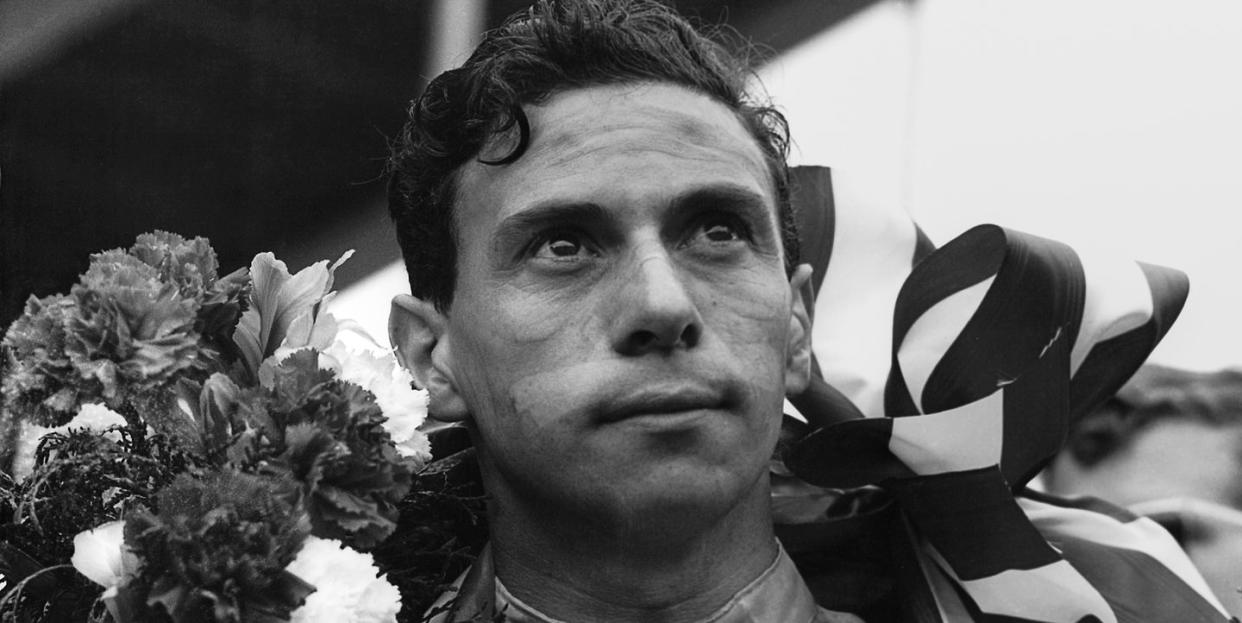
On this day in 1968, Scottish racer Jim Clark died after a crash during an Formula 2 race at Hockenheim. In his too-brief career, he displayed prodigious natural talent, collecting two Formula 1 championships, an Indy 500 win, multiple Tasman Series titles, and more. Many believe he was the greatest to ever race in F1.
To pay tribute, we're republishing a profile on Clark by biographer Graham Gauld, which originally ran in the December, 1965 issue of Road & Track with the headline "The Other Jim Clark." It provides a unique look at one of the most unlikely of champions. Enjoy. -Ed.
Jim Clark is a rather complex animal, not as fierce as many will make out and certainly not as shy and timid as others suspect. In short, he’s a human being who has done something he likes doing to the best of an incredible ability and yet has remained similar to the person he was when he started.
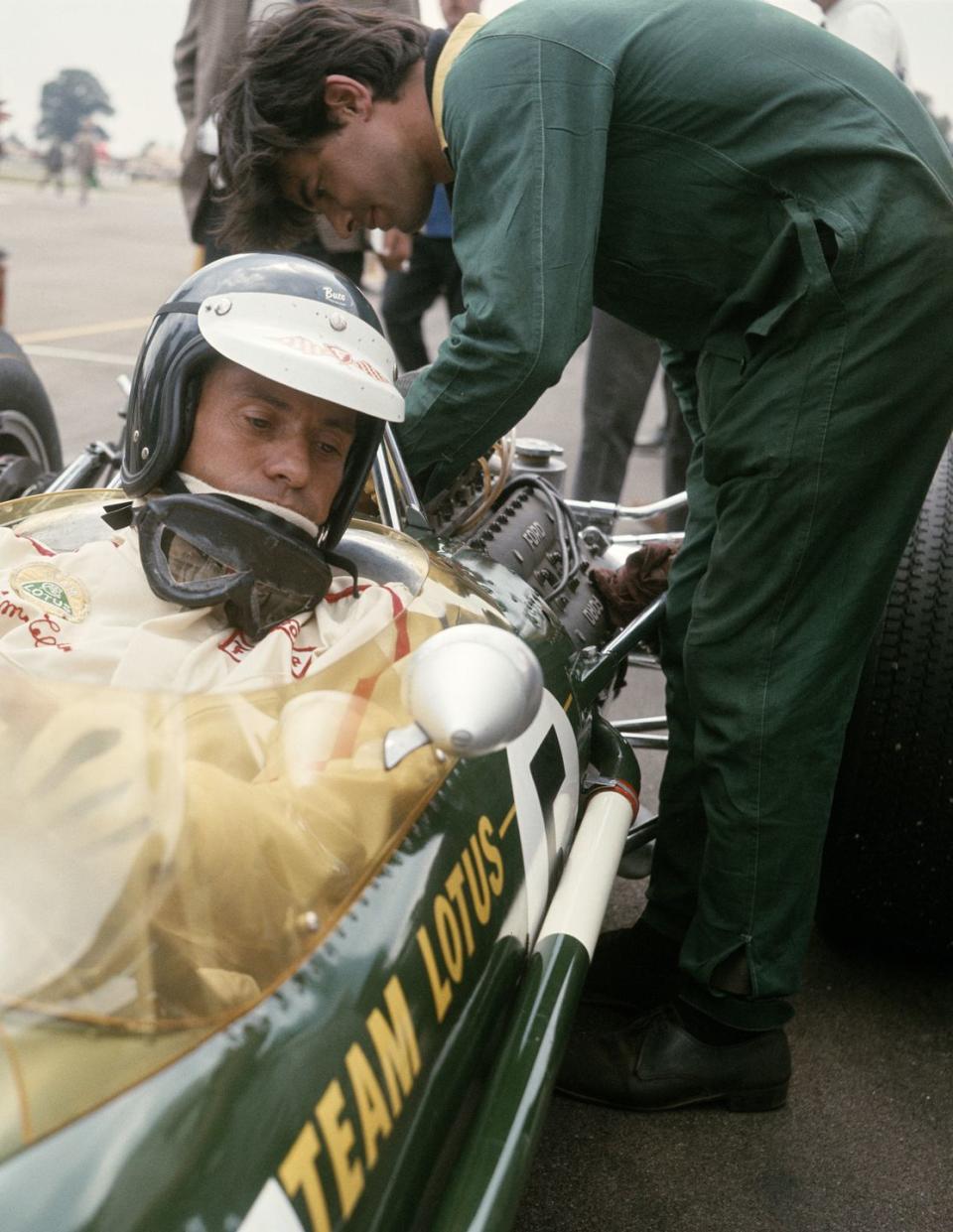
He is a contradictory person, and though this seems too pat an explanation, it does in fact reveal something fundamental about him—he is a Scotsman and Scotsmen are a very proud race. This characteristic reveals itself as an open frankness. This is often construed as conceit but is in fact almost innocence. Clark himself realizes that he is at times, um, tactless. During his visit to the New York World’s Fair just before Le Mans, someone asked if he would be driving a Ford GT in that 24-hr race. Ford was the host at this affair (immolating the Indy-winning Lotus-Ford) and Clark blurted out that wild horses wouldn’t drag him to Le Mans because it was a lousy race and there were not 120 drivers competent enough to be allowed on the same track together in the middle of the night. Later he said, "Suddenly I realized that here I was hammering at Le Mans when Ford had spent thousands preparing cars to win the damned thing. I wished the ground had opened up at that moment, and I don’t know what the Ford people thought."
The "other" Jim Clark is a farmer and as this is written he is probably down on his farm in rural Berwickshire looking up at the sky to see whether it’s worthwhile getting the crop harvest going. He really is a farmer and his farm house is as solid and secure a stone edifice as you could imagine in rural Scotland. The walls are three feet thick and the rooms generally small. His sitting room is tiny and trophies litter the place, on the floor, hanging on the walls and leaning against each other on the sideboard. If you stay the night, watch where you sleep for there is a family ghost to consider. It’s true, the number two guest bedroom is haunted and Colin Chapman refuses to sleep in the room anymore because of the creepy feeling he experienced one night when he made the mistake of sleeping there.
The only difficulty about the image of Clark the farmer is that he looks incongruous in his blue overalls and boots with his shepherd’s crook by his side and his tweedy cap on his head.
His home life is very provincial and totally divorced from his more worldly adventures in racing, yet he is genuinely happy to get back there and get mud on his feet again.
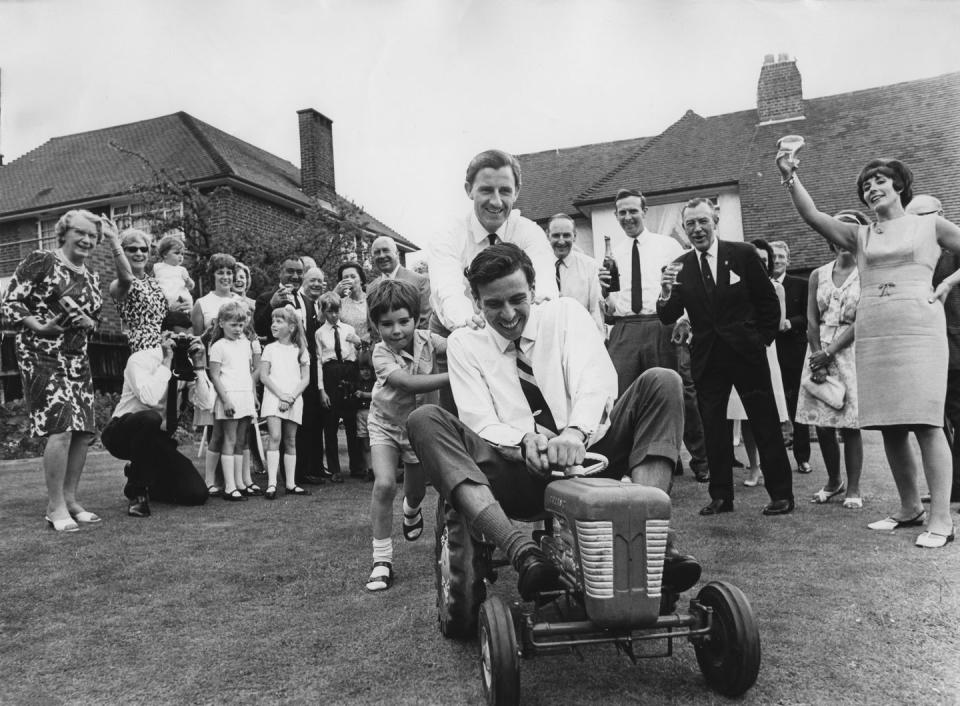
His taste in personal transportation is guided by circumstance. When he was young he was allowed a Sunbeam sedan and then he bought a Triumph TR-3, the first in Scotland, he claims. Today he is seen in Fords or Lotuses. He had an automatic (Hobbs) Elite at one time and swears by automatic transmissions. He thinks that American cars are good and at this moment is awaiting delivery of a Ford Galaxie LTD from Detroit with power steering, power brakes and automatic transmission. All this year he has been using a plushy Lotus Elan treated by the English coach-builders, Harold Radford. This has such things as electric windows—in an Elan yet—and fancy seats.
Clark is dedicated to whatever it is that interests him. This dedication can become almost monastic. For example, last winter he decided to learn to fly while he was in Australia, and he actually lived on the airfield and got up at 6:30 every morning to get down to the job. Today he is an accomplished pilot and zips here and there in his own plane. In essence, he is stubborn and determined, a characteristic he shares with fellow Scot Jackie Stewart. However, Stewart is as much an extrovert as Clark is an introvert. Meet Stewart and you can instantly make friends with him. Meet Clark and you start fumbling for words. Clark is wary. He makes friends slowly but these friends are then close friends. He despises hangers-on and doesn’t like having a retinue follow him around. At a race he will often hide away in his car or in a van until practice is about to start and then appear with his girlfriend Sally Stokes and Colin Chapman.
Jackie Stewart, now one of Clark’s closest friends, shared Sir John Whitmore’s Mayfair flat with Clark most of last season but it was only toward the end of the year that Jimmy appeared to trust Jackie enough to talk openly with him. Yet Clark was among the first to notice Jackie’s potential as a driver.
A further characteristic of Clark's reserve was expose dafter his first visit to Indianapolis. He told me afterward that he didn't like the American opening conversational gambit, "Glad to know you." Said Clark, "I felt like replying, 'But you don’t know me.'"
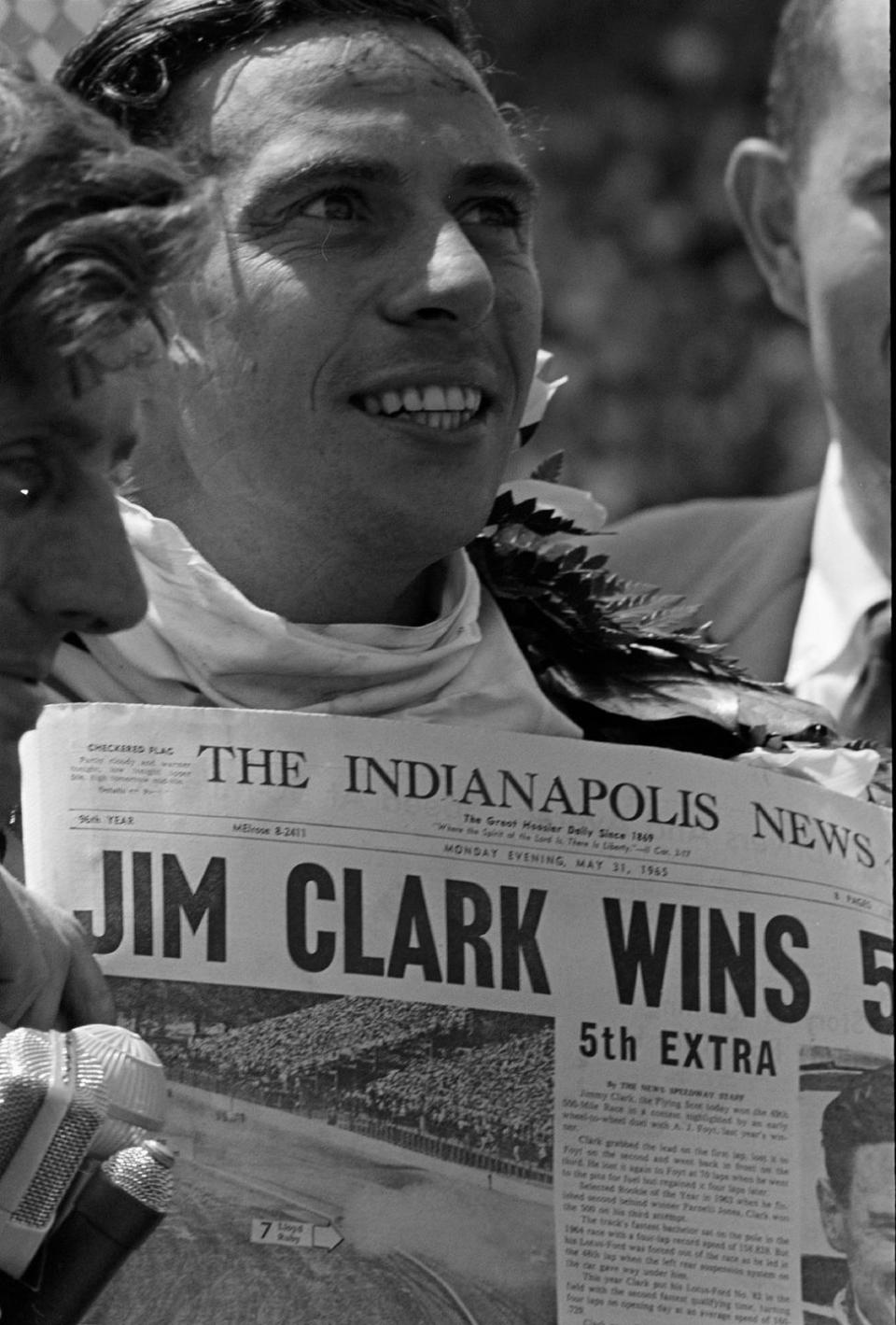
If you ask Clark what it is like to be World Champion he will tell you that the championship really means nothing. On the other hand he has admitted—once, anyway—that he really wanted to get the title this year. This was after his win at Indianapolis when he was sore because some of the European magazine reports hinted that he had skipped Monaco because of the big bag of gold clinking at Indy. Said Clark, "I just about didn't go to Indy but apart from anything else, I felt Lotus was going whether I drove or not. They were contracted to Ford and I know the amount of effort and time that goes into Indy and I reckoned that if they were going to spend that time doing the thing, they weren't going to put their effort into their work back home."
Having won at Indianapolis, he wanted to come back to Europe and show everyone that it didn’t matter that he’d missed the first European Grand Prix race, he could win the championship anyway.
Admittedly there was an element of luck in the five victories in a row that took him to his second World Championship, but no one wins GPs on luck alone these days.
If you get Clark away from a race track, he displays his basic shyness and nervousness. His fingernails are gnawed to the quick. He fidgets, makes lousy speeches which are mumbled into microphones while he studies his shoes, and his repertoire of jokes is thin. In company he prefers to try and share the humor of everyone else rather than instigate his own humor like Jackie Stewart. At the same time, if the mood is right and the company ideal, a more enjoyable companion would be hard to find. If the mood is wrong and a stranger tries to talk to him, the air becomes icy.
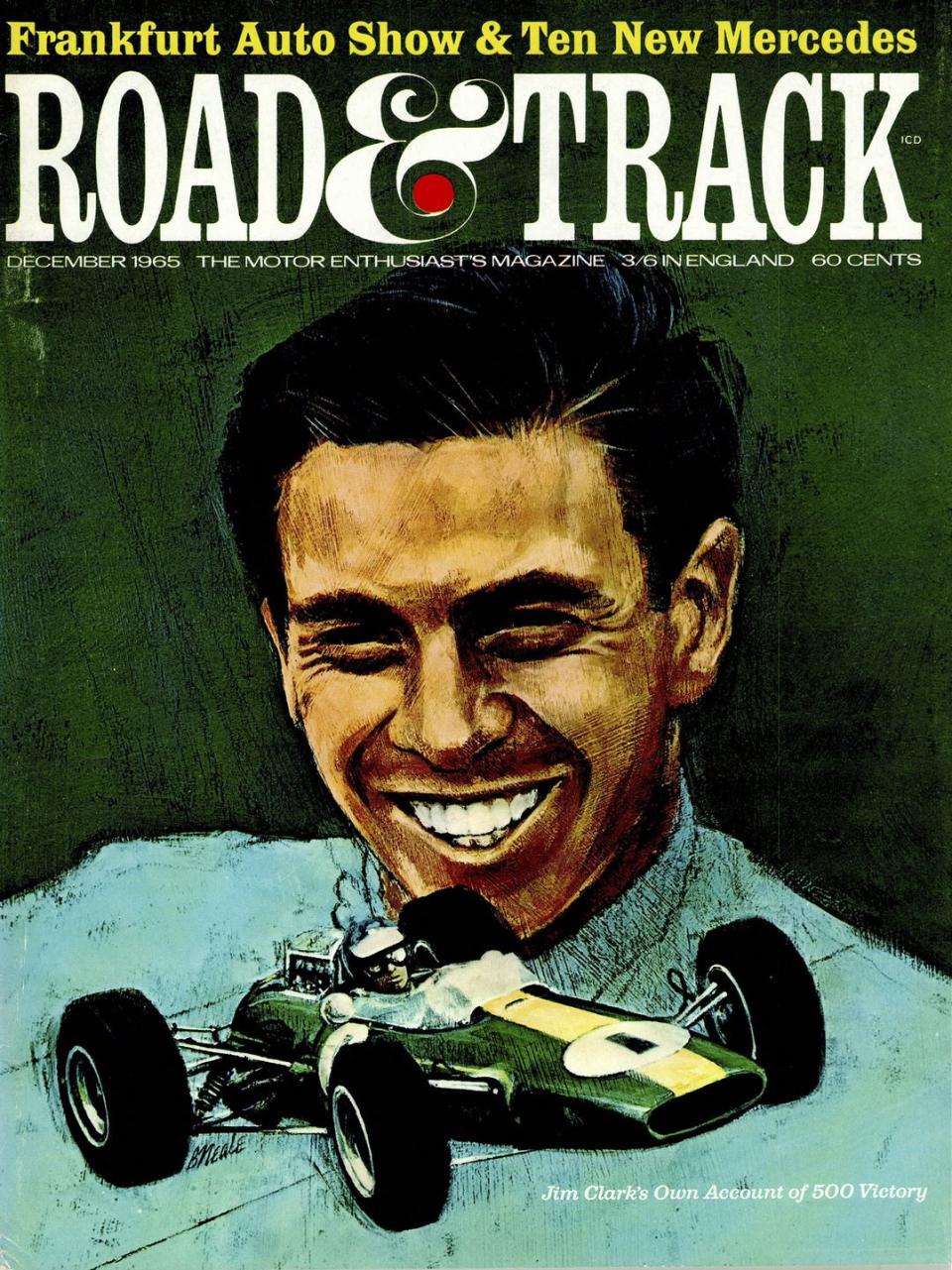
These, then, are some notes on the "other" Jim Clark. As I said earlier, he is contradictory. I don’t think he understands himself at times. Throughout his career, however, he has remained constant to his original interest in motor racing. This is his utter enjoyment in controlling a fast car through the right line on a race track. He might lapse occasionally and say, as he did after Spa and Indianapolis, that it is all becoming boring and repetitious. A few months later, though, he'll say that he gets just as many kicks out of it as ever.
You Might Also Like

